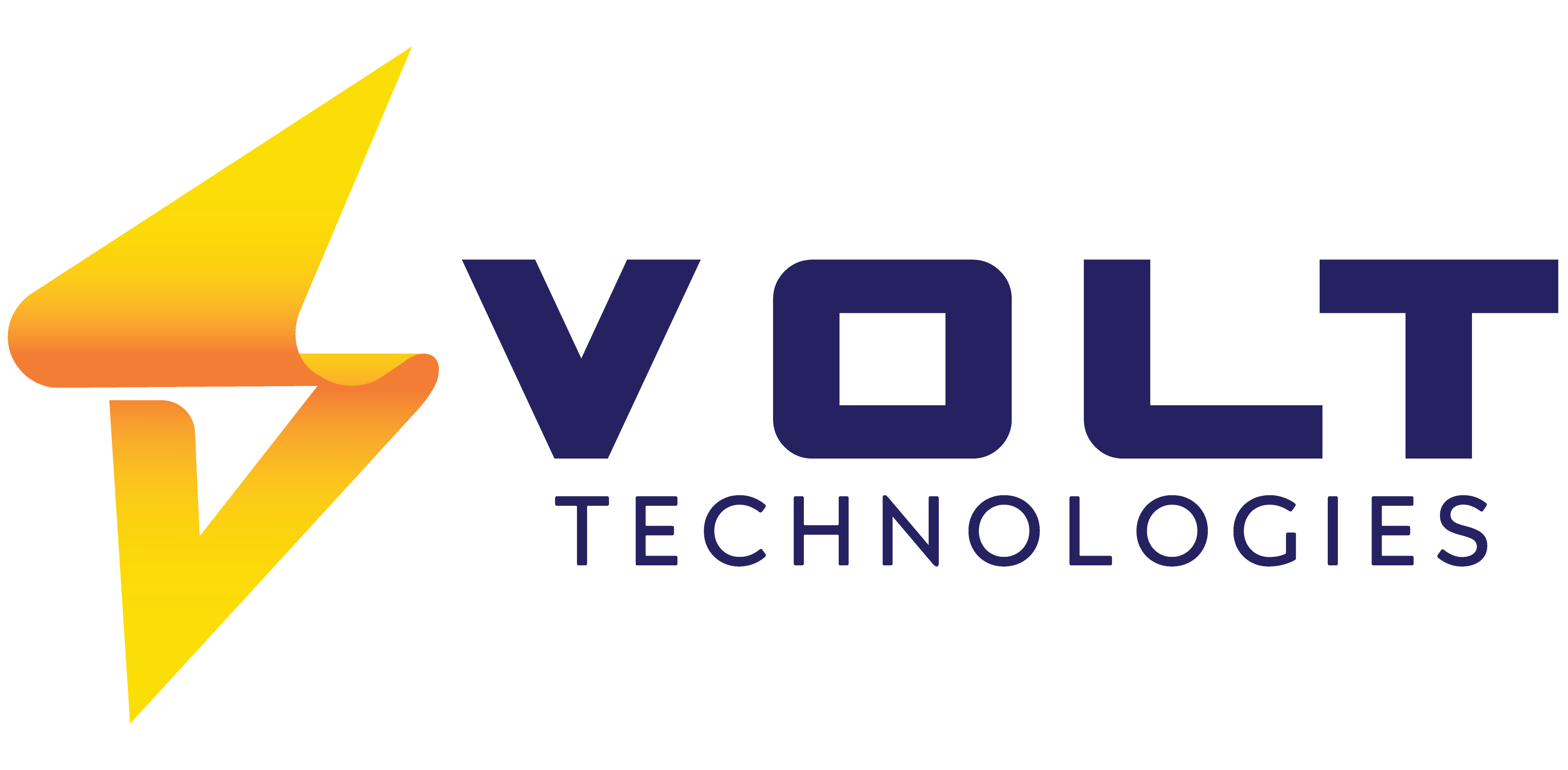CRM Comparison – Dynamics 365 Sales vs Salesforce for Business Central Users


Microsoft Dynamics 365 | Simplify your IT footprint and make decisions faster.
- August 18, 2025
Introduction
When it comes to enterprise CRM platforms, two names dominate the conversation: Salesforce and Microsoft Dynamics 365 Sales. For businesses already using Business Central, the decision is even more strategic, your CRM needs to integrate smoothly with your ERP to ensure operational efficiency, data consistency, and better customer experiences.
This blog compares Dynamics 365 Sales vs Salesforce, focusing specifically on the needs of Business Central users. We’ll look at features, integration capabilities, AI tools, ecosystems, and pricing to help you determine the right CRM for your organization.
Whether you’re exploring a new CRM or evaluating a switch, this CRM platform comparison for 2025 will break down the key differences between Dynamics 365 Sales and Salesforce, so you can make an informed decision that aligns with your long-term business goals.
Battle of the Titans: Dynamics 365 Sales vs Salesforce Explained
Choosing a CRM is no longer just about tracking leads, it’s about enabling an integrated, intelligent customer journey. Here’s how the two leading platforms stack up, especially for businesses already leveraging Business Central.
What is Dynamics 365 Sales?
Microsoft Dynamics 365 Sales is part of the broader Dynamics 365 ecosystem. It provides a fully integrated CRM experience for managing opportunities, forecasting revenue, automating workflows, and nurturing long-term customer relationships.
Key benefits for Business Central users include:
- Native integration with financial data and ERP processes
- Embedded tools like Outlook, Teams, and Power BI
- Support for Copilot Agents (AI-powered sales assistance)
- Strong security and compliance via Azure
It’s ideal for organizations looking to keep CRM, ERP, and productivity tools under one unified Microsoft umbrella.
What is Salesforce Sales Cloud?
Salesforce Sales Cloud is the world’s most widely adopted CRM. It’s highly customizable and built for scale, offering:
- Advanced pipeline and deal tracking
- AI-powered insights via Einstein AI
- Extensive partner ecosystem via Salesforce AppExchange
- Industry templates and vertical-specific solutions
Salesforce is often chosen for its deep functionality and flexibility, especially in companies with complex sales environments or multi-platform tech stacks.
CRM Use Cases for Business Central Users
For companies already using Business Central, the right CRM should:
- Enable end-to-end lead-to-invoice workflows
- Centralize customer data across sales, service, and finance
- Support real-time visibility for sales and customer service teams
- Reduce duplication and manual work via automation
- Provide intelligent recommendations and follow-up actions
Both platforms are powerful—but how they align with Business Central can make all the difference.
Feature-by-Feature: Salesforce vs Microsoft Dynamics 365 for CRM
When evaluating Dynamics 365 Sales vs Salesforce, it’s essential to look beyond branding and dive into real-world functionality, especially if your CRM will integrate with Business Central. Below is a detailed breakdown of core capabilities.
Key CRM Capabilities: Side-by-Side Comparison
Feature | Microsoft Dynamics 365 Sales | Salesforce Sales Cloud |
Integration with Business Central | Native, real-time data sync and workflows | Requires middleware (API or third-party tools) |
Microsoft 365 Integration | Deep integration with Outlook, Teams, Excel | Basic Outlook integration, no native Teams support |
Reporting & Analytics | Embedded Power BI with live reports | Standard dashboards; deeper analytics via add-ons |
Workflow Automation | Power Automate (drag-and-drop workflows) | Salesforce Flow (powerful, steeper learning curve) |
AI Capabilities | Copilot Agents for real-time suggestions, scoring | Einstein AI for predictive insights |
Mobile Access | Native iOS/Android apps with offline support | Robust mobile app with strong customization |
App Ecosystem | Microsoft AppSource: curated, Business Central-ready | Salesforce AppExchange: large, diverse marketplace |
Customization Tools | Power Platform (no-code/low-code) | Salesforce Lightning (code-heavy in some cases) |
Pricing & Licensing | Flexible tiers for SMBs | Higher cost, especially at scale |
User Experience | Familiar Office-like UI | Modern UI, highly customizable |
AI-Powered CRM Showdown: Copilot vs Einstein
Both Microsoft and Salesforce are investing heavily in AI-powered CRM platforms:
- Salesforce Einstein AI offers features like opportunity scoring, next-best actions, and email insights but often requires configuration and higher-tier licenses.
- Microsoft Copilot Agents bring contextual AI directly into Dynamics 365 Sales, working across Outlook, Teams, and Business Central to surface tasks, generate follow-ups, and provide real-time suggestions.
For Business Central users, Copilot offers more cross-app intelligence within the Microsoft ecosystem.
Salesforce AppExchange vs Microsoft AppSource: Ecosystems Compared
When comparing Dynamics 365 Sales vs Salesforce as CRM platforms, one critical aspect is the ecosystem, the third-party apps, add-ons, and services you can access to extend and enhance the platform.
Salesforce AppExchange: Industry-Leading Marketplace
Salesforce AppExchange is known for its massive ecosystem:
- Over 5,000 apps and integrations
- Industry-specific solutions (healthcare, finance, manufacturing, etc.)
- Highly customizable components for marketing automation, analytics, support, and more
- Strong partner network with global ISVs
Pros:
- Mature marketplace with depth
- Great for complex, highly tailored CRM use cases
- Frequent innovation in niche verticals
Cons:
- Some apps are expensive or require consultants to configure
- Integrating with Microsoft tools (e.g., Business Central) often requires custom middleware
Microsoft AppSource: Business-Centric & ERP-Friendly
Microsoft AppSource, while smaller in size, is tightly aligned with Microsoft’s business stack:
- Thousands of curated business apps and certified add-ons for Business Central
- Built-in integration with tools like Outlook, Excel, Power BI, and Teams
- Power Platform extensions (Power Automate, Power Apps, Power Virtual Agents)
Pros:
- Designed for organizations using Business Central and Microsoft 365
- Faster deployments and better cross-product compatibility
- Pre-built extensions for industry needs and localization
Cons:
- Fewer niche CRM apps than Salesforce
- May require some Power Platform configuration for complex needs
If you’re already using Business Central or planning deeper ERP + CRM alignment, Microsoft AppSource offers seamless integrations and faster time-to-value. If you’re investing in a multi-cloud or highly customized stack, Salesforce AppExchange provides flexibility at a cost.
Pros and Cons of Dynamics 365 Sales and Salesforce for CRM
Choosing between Dynamics 365 Sales and Salesforce depends on your business priorities, tech stack, and budget. Here’s a clear breakdown of the strengths and trade-offs of each CRM platform.
Salesforce Pros & Cons
Pros
- Industry-leading CRM platform with rich features across sales, marketing, and service
- Massive AppExchange ecosystem with thousands of third-party apps
- Strong customization capabilities using Salesforce Lightning and Apex
- Ideal for large enterprises and cross-cloud environments
Cons
- Higher licensing and implementation costs, especially at scale
- Complex integrations with Microsoft tools (e.g., Business Central, Outlook, Teams)
- Requires more technical effort for configuration and custom workflows
Microsoft Dynamics 365 Sales Pros & Cons
Pros
- Seamless integration with Business Central, Outlook, Excel, and Teams
- Lower total cost of ownership for SMBs and mid-market firms
- Built-in Power Platform tools (Power BI, Automate, Copilot Agents)
- Familiar UI for Microsoft users and quick ramp-up
Cons
- Smaller third-party app ecosystem compared to Salesforce
- Customization may require deeper Power Platform expertise
- Fewer vertical-specific solutions out of the box
Which is Cheaper: Salesforce or Microsoft Dynamics?
Microsoft Dynamics 365 Sales is typically more cost-effective for Business Central users, especially when bundled with other Microsoft services. Salesforce may offer deeper vertical features, but that comes at a higher licensing and implementation cost.
When considering cost vs integration benefits, Microsoft often wins out especially for organizations already embedded in the Microsoft ecosystem.
CRM Decision Guide for Business Central Users
Choosing between Dynamics 365 Sales and Salesforce isn’t just about features, it’s about alignment with your tech stack, business goals, and long-term scalability. Here’s a practical guide to help Business Central users navigate the decision.
When to Choose Microsoft Dynamics 365 Sales
You already use Business Central, Microsoft 365, or Teams
You want real-time ERP + CRM integration without middleware
You need a familiar interface for faster adoption
You’re focused on TCO, ease of use, and productivity
You want built-in Power BI dashboards, Copilot AI, and Power Automate workflows
For most small to mid-sized businesses using Business Central, Microsoft Dynamics 365 Sales offers faster time-to-value and a unified digital workspace.
When to Consider Salesforce
You have an existing Salesforce implementation or strong in-house expertise
Your sales processes require deep customization and heavy automation
You operate in a vertical where Salesforce has strong AppExchange apps
You’re investing in a broader, multi-cloud customer engagement strategy
You want access to Salesforce’s Einstein AI and niche-specific features
Salesforce may be the right fit if you’re already committed to its ecosystem or if your organization is large, complex, and highly industry-specific.
If your goal is to create a seamless connection between ERP, CRM, and productivity tools, Microsoft Dynamics CRM vs Salesforce isn’t a close call Dynamics 365 Sales is purpose-built for Business Central users.
How Volt Technologies Helps You Choose & Implement the Right CRM
At Volt Technologies, we don’t just implement software—we help you build a fully integrated digital workspace that connects your ERP, CRM, and productivity tools into one seamless ecosystem.
Whether you’re leaning toward Dynamics 365 Sales or considering Salesforce, our team guides you every step of the way.
CRM Strategy & Selection for Business Central Users
Choosing the right CRM is a business-critical decision. Volt helps by:
- Auditing your current systems, workflows, and user needs
- Comparing Dynamics 365 Sales vs Salesforce through the lens of Business Central integration
- Recommending the most scalable, cost-effective CRM aligned to your goals
- Helping you evaluate licensing, ecosystem fit, and AI feature alignment
Our consultants bring deep knowledge of both platforms and a Business Central-first perspective.
Implementation & Integration Services
Whether you’re adopting Microsoft Dynamics 365 Sales or integrating Salesforce into your ERP environment, we ensure:
- Smooth CRM deployment with tailored configurations
- End-to-end ERP-CRM integration using native tools, Power Automate, or custom APIs
- Real-time sync between customer, finance, and sales data
- Embedded reporting via Power BI or Salesforce dashboards
Training, Support & Optimization
We don’t disappear after go-live. Volt offers:
- Hands-on user training for sales and service teams
- Custom dashboard and report setup
- Ongoing performance reviews and feature rollout
- Integration health checks and workflow automation refinement
Whether you choose Dynamics 365 Sales or Salesforce for CRM, Volt ensures your CRM and ERP systems work in harmony, fueling your growth.
Conclusion: Salesforce vs Microsoft CRM, Which One Fits Best with Business Central?
Both Salesforce and Microsoft Dynamics 365 Sales are world-class CRM platforms, but their strengths lie in different areas.
If your organization is already using Business Central or operates in the Microsoft ecosystem, the choice is clear: Dynamics 365 Sales offers unmatched native integration, lower cost of ownership, and a unified experience across ERP, CRM, and productivity tools. You’ll benefit from a familiar interface, embedded AI, and real-time data connectivity.
Salesforce shines in heavily customized environments, with its powerful AppExchange, flexible automation, and industry-specific features. But for Business Central users, integrating Salesforce often adds cost, complexity, and delay.
Bottom line: If your goal is efficiency, scalability, and system alignment, Microsoft Dynamics 365 Sales is the best-fit CRM for Business Central.
Need Help Choosing the Right CRM for Business Central?
Let Volt Technologies guide your decision with confidence.
Book a Free CRM Evaluation
Learn More About Business Central + CRM Integration
Choose smarter. Integrate faster. Grow better—with Volt.
